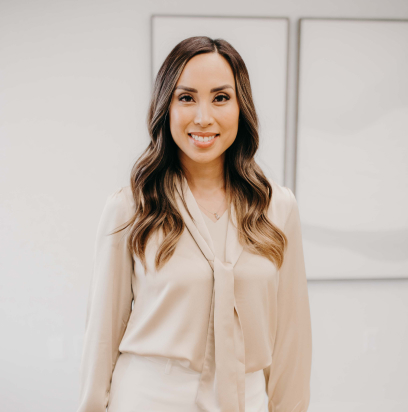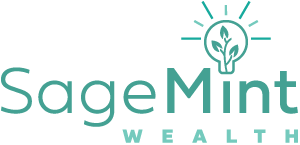
Strategic Sabbaticals & Mini Retirements: Planning a Mid-Career Reset Without Sacrificing Your Future
September 23, 2025
8 Smart Financial Planning Moves to Make Before Year-End 2025
October 23, 2025Holistic financial planning isn’t just about managing money. It’s about designing a life that feels rich in every sense of the word, aligning your finances with the kind of life you want to live, the people and causes that matter most to you, and the energy you need to fully enjoy it all.
A truly holistic financial planner looks beyond investments and retirement accounts to understand your whole picture: your health, your happiness, and your ability to thrive. This approach recognizes that money touches every part of life. The way you spend, save, and plan influences your stress levels, relationships, sleep, and overall sense of well-being.
Research consistently shows that the connection between health and wealth runs both ways. Moreover, people who plan intentionally not only achieve stronger financial outcomes but also experience better physical and mental health.
In other words, thoughtful planning doesn’t just build wealth. It also helps you live a healthier, more balanced, and more fulfilling life.
The Power of Holistic Planning: What the Research Shows
If you’ve ever felt a sense of relief after making a plan, you’ve already experienced one of the proven, science-backed benefits of planning.
Academic researchers have spent decades studying the behavior of planners versus non-planners, and their findings are remarkably consistent:
- People who make regular financial plans accumulate significantly more wealth over time, according to Ameriks, Caplin, and Leahy.
- Planners are more likely to follow through on health-related goals such as exercising, eating well, and getting regular medical checkups, according to Scholz, Sniehotta, Burkert, and Schwarzer.
- Compared to non-planners, planners report higher financial satisfaction and overall well-being, according to Xiao and O’Neill.
Why does planning work so well? Because it turns ideas into action. When you translate abstract goals into clear, measurable steps—like saving $1,500 a month or walking 10,000 steps a day—you give yourself a roadmap for progress.
Planning also quiets the noise of uncertainty by helping you move past procrastination and resist the emotional decisions that can derail your long-term goals. Put differently, a good plan is the bridge that carries you from where you are today to where you truly want to be.
What Does “Planning” Really Mean?
Planning doesn’t need to be a complex process. It can be as simple as scheduling your annual physical, setting up automatic savings, or creating a meal plan for the week.
The key is intentionality. Successful plans tend to be SMART: Specific, Measurable, Achievable, Relevant, and Time-bound. Whether your goal is to buy a vacation home or run your first 5K, a SMART framework keeps you accountable and adaptable.
In practice, planning is about:
- Building daily habits that support your long-term goals
- Tracking your progress and adjusting when needed
- Creating systems (like automatic transfers or calendar reminders) that make good decisions easier
Ultimately, planning is less about paperwork and more about self-leadership. It’s the discipline of aligning your daily choices with your deeper values.
The Holistic Connection Between Health and Wealth
Health and wealth are deeply intertwined, each one influencing and sustaining the other.
Financial security doesn’t guarantee happiness, but it does create the freedom to make health-supportive choices: seeing a doctor when necessary, eating well, taking time to rest, and enjoying experiences that bring joy. When your finances are organized, your stress levels drop, your sleep improves, and you’re better equipped to care for yourself and others.
According to a 2024 Bankrate survey, nearly half of U.S. adults (47%) say money negatively impacts their mental health, most commonly through stress and anxiety. A thoughtful financial plan can help ease that strain by preparing you for both the expected and the unexpected.
With a strong financial foundation in place, you’re better equipped to invest in your health, from routine checkups and preventive care to the everyday habits that support a balanced, fulfilling lifestyle.
The connection also runs in the other direction: good health supports wealth. When you feel strong, focused, and well-rested, you make clearer financial decisions, perform better in your career, and sustain your earning potential over time.
Neglecting health, on the other hand, can quietly erode even the best financial plan through lost income, higher medical expenses, or burnout that diminishes your quality of life.
Holistic financial planning recognizes this balance. When your financial plan supports your physical, emotional, and mental well-being, you’re not just planning for wealth; you’re also planning to live well.
Practical Steps for Planning Both Health and Wealth
#1: Integrated Goal Setting
The most powerful plans connect physical and financial goals. For example:
- Saving for retirement while also training for a marathon.
- Budgeting for a family vacation that doubles as a wellness retreat.
- Planning for reduced work hours to allow time for caregiving or rest.
When you align your health milestones with your financial goals, progress in one naturally fuels progress in the other. It’s not about doing more; it’s about doing what matters most with the resources you have. Your time, energy, and money all work harder when they’re directed toward a single, unified vision of the life you want to live.
To put this into practice, set holistic goals that connect different areas of your life. For example, instead of saying, “I want to save more,” try, “I want to save enough to work part-time by 55 so I can focus on my health and travel more.” The clearer your vision, the easier it becomes to build a plan that supports it—financially, physically, and emotionally.
#2: Budgeting for Health, Not Just Money
Health is one of the best investments you can make, and your financial plan should reflect that. Just as you budget for home renovations or vacations, you should allocate funds for wellness activities that sustain you.
That might include:
- Preventive care and regular screenings
- Gym memberships or personal training
- Therapy, coaching, or stress-management programs
- High-quality food or meal-prep services
- Sleep tools, ergonomic equipment, or wellness retreats
Many people overlook tax-advantaged ways to pay for these costs. If you have access to a Health Savings Account (HSA) or Flexible Spending Account (FSA), you can use pre-tax dollars for eligible medical expenses, lowering your overall cost.
If wellness feels expensive or unnecessary, remember that prevention costs far less than treatment. Prioritizing health spending today can preserve both your well-being and your wealth over time.
#3: Risk Management
Even the best plans can be disrupted by the unexpected—for instance, a medical diagnosis, a job loss, or an accident. Protecting against these risks is part of responsible holistic planning.
Key steps include:
- Insurance coverage. Review health, disability, and life insurance regularly to ensure coverage matches your needs and income level.
- Cash reserve. Set aside at least 3–6 months of essential expenses to reduce stress during transitions.
- Estate planning. Create or update your will, powers of attorney, and healthcare directives so your wishes are clear and loved ones are protected.
These safeguards provide financial stability and offer emotional peace, allowing you to focus your energy on healing or adapting rather than panicking.
#4: Regular Reviews and Adaptation
Both your life and your health are dynamic. In other words, what served you at 35 may not fit at 55. Regular check-ins—both financial and physical—help keep your plans aligned with your current reality.
Make it a habit to meet with your financial planner at least once a year, just like a routine physical. Beyond financial milestones and investment performance, it’s important to cover:
- Changes in your family or health situation
- Shifts in your values, goals, or stress levels
- Upcoming life transitions (career changes, caregiving, relocation)
Advisors like SageMint Wealth take a whole-person approach, helping you make proactive adjustments instead of reactive fixes. When your plan grows and evolves with you, it remains relevant, resilient, and truly empowering.
Plan Well, Live Well: Your Future Starts Here
Holistic planning is one of the most powerful tools you have for shaping your life. A clear plan brings peace of mind, reduces anxiety about the future, and helps you build the healthy habits that sustain long-term fulfillment.
At SageMint Wealth, we see planning as a holistic practice, one that aligns your money, health, and purpose so each supports the other. When you plan intentionally for both health and wealth, you create a positive cycle of well-being: your body fuels your ambitions, and your financial foundation empowers you to live fully.
Creating a life of abundance means tending to every part of yourself, not just your portfolio. Our mission is to help you reduce stress, build lasting stability, and align your financial strategies with the life you truly want to live.
If you’re ready to design a future that’s rich in every sense of the word, we’re here to guide you. Contact us today to begin your journey.
Related posts
Live Well. Do Good.












